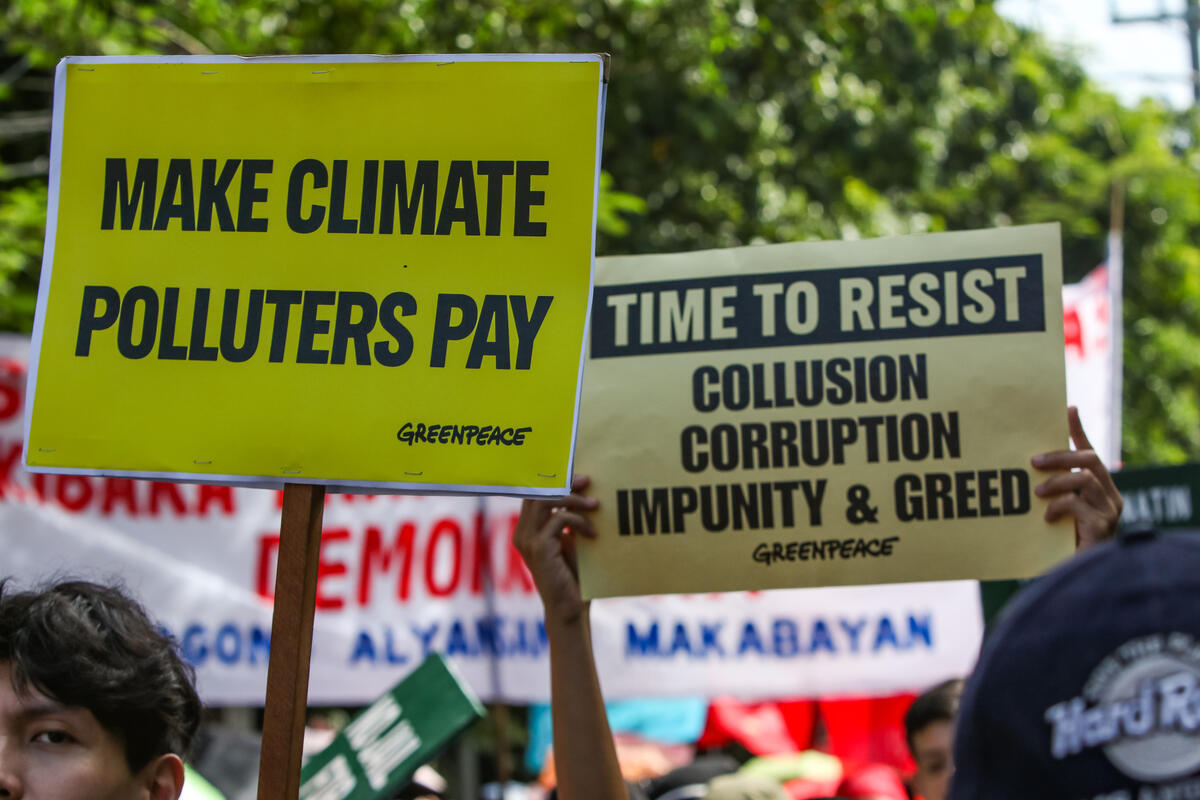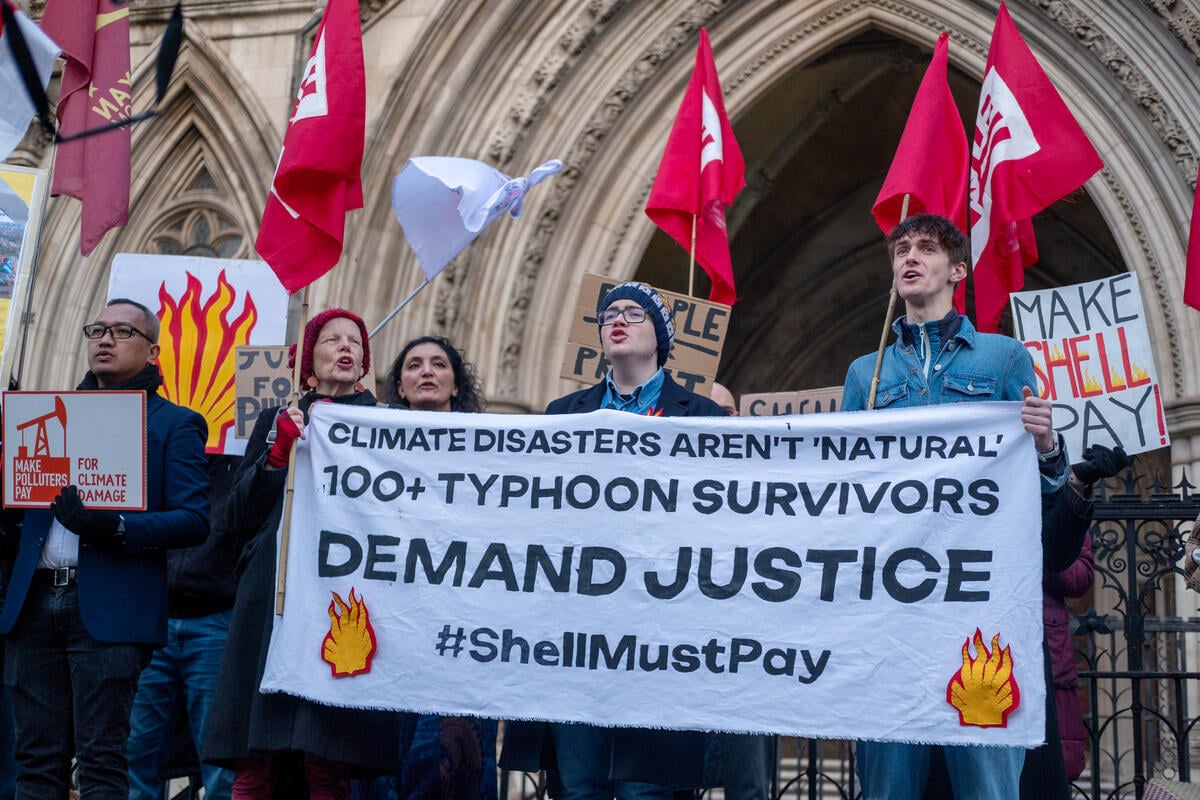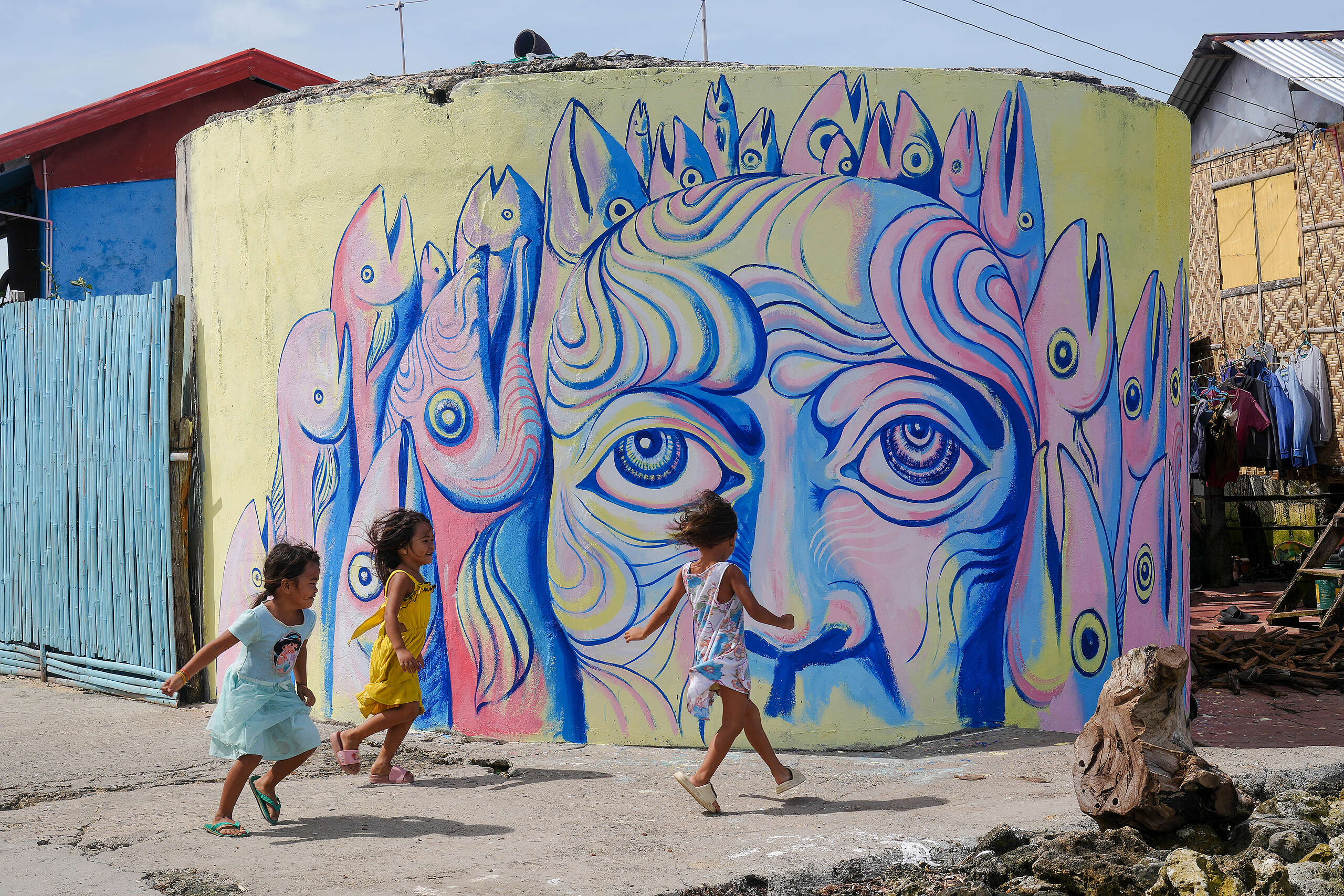Greenpeace to COP30: Make big polluters pay
Quezon City — Greenpeace Philippines urged world leaders at the 30th UN Climate Change Conference (COP30) in Belém, Brazil to act decisively and make climate polluters pay, following new research showing that climate change—driven largely by fossil fuels—intensified the recent Typhoon Tino (international name: Kalmaegi) and Super Typhoon Uwan (Fung-wong). The study found that Uwan’s increased strength raised economic damages in affected communities by as much as 30%.
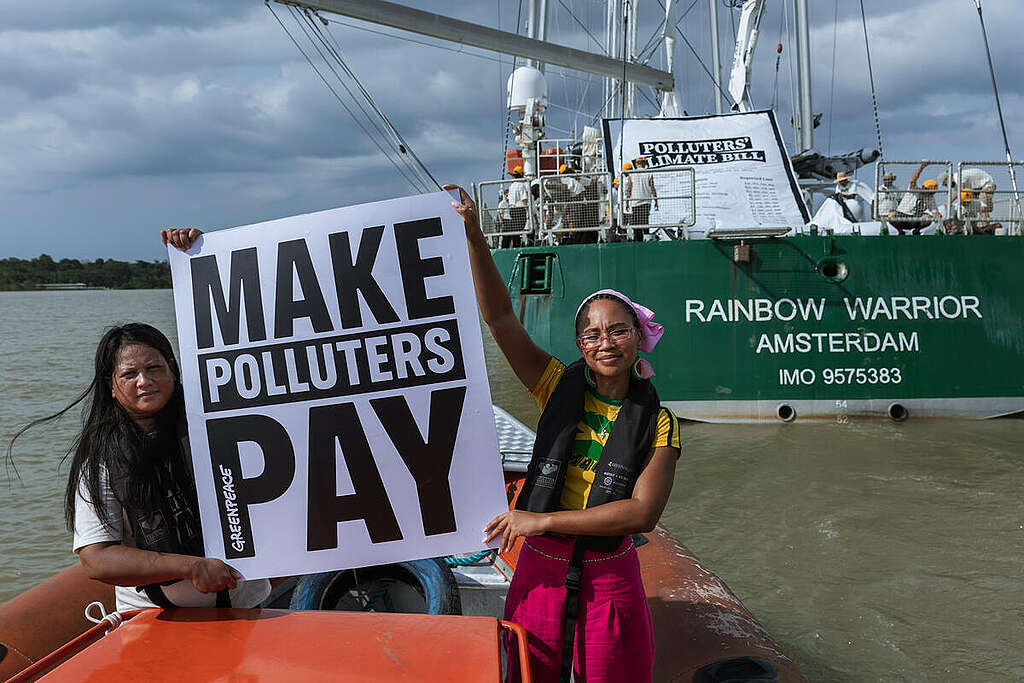
“Fossil fuel greed is not only driving the climate crisis but is also pushing Filipinos deeper into totally preventable debt, hunger, and poverty,” said Jefferson Chua, climate campaigner at Greenpeace Philippines. “Every stronger typhoon, every flooded home, every life lost is a direct result of decades of corporate negligence and government inaction. How many more Uwans and Tinos must we endure before the world finally makes polluters pay?”
Rapid attribution studies released today show that climate change increased Uwan’s wind speed in the Philippines by 5.5% and rainfall by 10.5%,[1] while Tino’s wind speed rose by 3% and rainfall by 8.6% as it hit Vietnam.[2] The estimates were generated using the Imperial College Storm Model (IRIS) model. The two storms triggered massive flooding and storm surges across the islands of Luzon and Visayas, leaving nearly 240 people dead, according to the National Disaster Risk Reduction and Management Council (NDRRMC).
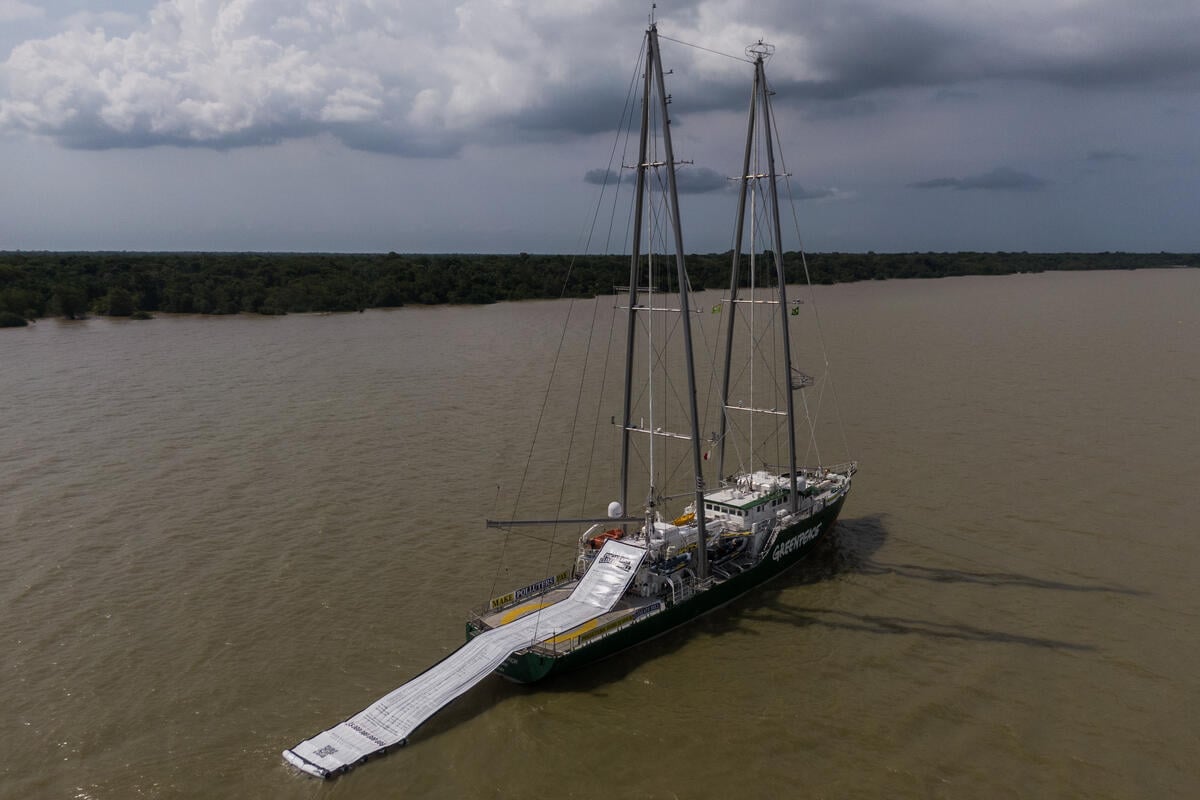
“Every increase in intensity translates to suffering and death for those living in the frontlines,” Chua added. “Let us be perfectly clear: these are not one-off events but part of a disturbing pattern of rapidly intensifying, wetter, and more unpredictable extreme weather, bearing the fingerprints of fossil fuel companies who continue to drive the climate crisis to unimaginable proportions. Allowing them to continue business as usual is condemning millions of Filipinos to a lifetime of rebuilding from ruins. At COP30, we expect world leaders to strengthen adaptation commitments and finally fill the Loss and Damage Fund.”
Combined infrastructure damages from Tino[3] and Uwan[4] have reached PHP 2.18 billion, while agricultural losses soared to PHP 502.18 million, according to the latest NDRRMC figures. These exclude the non-economic impacts such as emotional, psychological, and physical suffering—burdens that communities repeatedly exposed to climate disasters are forced to carry.
“Marami na kaming nakitang bagyo, pero [Uwan] was the worst that we have experienced,” recalled a teary-eyed Glynis Balagot, owner of a hostel in San Juan, La Union. “Dagdagan mo pa ng corrupt politicians na supposedly should be taking care of us… Akala niyo hindi totoo ‘yung climate change? It’s real. Akala niyo hindi nakakamatay ‘yung corruption niyo? It’s real. Pahirap kayo, sa totoo lang. These companies have to pay. This government has to pay. Wala kayong awa,” she said.
(We’ve weathered so many storms, but Uwan was the worst that we have experienced. On top of this, we have corrupt politicians who supposedly should be taking care of us. You think climate change is not real? It’s real. You think your corruption isn’t causing death? Frankly speaking, it’s a burden to us all. These companies have to pay. This government has to pay. These people are ruthless.)
Earlier research[5] also linked climate change to the intensification of typhoons closer to shore, leaving communities with little time to prepare and worsening impacts on agriculture, fisheries, and local tourism.
“Kapag may bagyo, nasisira ang aming mga bangka. Matagal pang [maipaayos] dahil wala kaming pambili,” said Roger Fabillar, president of the Seguinon Fisherfolks Association and a fisherfolk for more than 30 years in Eastern Samar, a province frequently battered by typhoons. “Madalas, ‘di [kami] makapalaot dahil masama ang panahon.”
(Our boats get damaged whenever storms hit. It takes a lot of time to get them fixed as our finances run dry. Most of the time, we can’t go out fishing due to extreme weather conditions.)
Greenpeace believes these realities demonstrate why urgent action at home, alongside the COP30 negotiations, is essential. “President Ferdinand Marcos Jr. must also take strong domestic action, such as certifying the Climate Accountability (CLIMA) Bill as urgent. This would direct climate finance to frontline communities and hold major polluters financially accountable for the harm they have caused,” Chua added.
Photos of La Union photo-ops HERE
Video of clip reel HERE
Access all photos and videos of Super Typhoon Uwan HERE
Note to the editor:
[2] Typhoon Kalmaegi
[3] Situational Report No. 25 for the Effects of Tropical Cyclone TINO (2025)
[4] Situational Report No. 17 for the Effects of TC UWAN (2025)
[5] A Global Increase in Nearshore Tropical Cyclone Intensification
For more information, contact:
James Relativo, Greenpeace Communications Campaigner
[email protected] | +63 919 069 3424 (SMART) | +63 960 480 0297 (Viber & WhatsApp)

